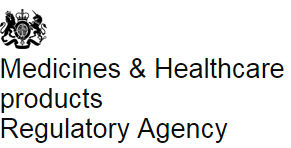UK Agency targets blood thinners in personalised medicine pursuit
2024-02-13
孤儿药突破性疗法

Preview
来源: Pharmaceutical Technology
The first patients will have their genetic makeup sequenced in spring 2024, with the data being shared in 2025. Credit: Vitalii Stock via Shutterstock.
The Medicines and Healthcare products Regulatory Agency (MHRA) is continuing its pursuit towards the goal of personalised medicine by launching the second phase of its pilot genetic biobank, this time targeting direct oral anticoagulants (DOACs).
The Yellow Card biobank, launched by the MHRA on 1 June 2023, strives to investigate how a patient’s genetics can affect the safety of their medications.
The pilot aims to make prescriptions more personalised, utilising rapid screening tests to inform healthcare professionals while prescribing drugs to a patient.
DOACs are drugs used to prevent blood clots from forming or getting larger in blood vessels. They work by interfering with the blood’s natural clotting process, targeting proteins involved in clot formation. Excessive bleeding is listed as one of the possible side effects associated with the use of the drugs – whilst they prevent clotting, they can also inhibit the blood’s ability to stop bleeding when necessary.
See Also:Disc wins orphan drug tag for rare blood cancer

Preview
来源: Pharmaceutical Technology
First targeted alpha therapy wins FDA breakthrough device designation

Preview
来源: Pharmaceutical Technology
A November 2023 announcement from England’s National Health Service (NHS) revealed that since a rollout in January 2022, an estimated 17,000 strokes and 4,000 deaths had been prevented.
GlobalData epidemiologists forecast that venous thromboembolism (VTE) market in the seven major pharmaceutical regions (US, France, Germany, Italy, Spain, UK, and Japan) will increase from $3.6bn in 2022 to $4.6bn in 2032.
The continued uptake of oral anticoagulants for the treatment of VTE and recent clinical trial guidelines endorsing their use for patients with cancer and renal impairment are major drivers of the VTE market, as per GlobalData analyst Sarah Bundra, MPH. However, major barriers to the growth of the market are mainly attributed to these anticoagulants facing generic erosion as their patents expire at the beginning of the forecast period.
The first phase of the Yellow Card biobank project focused on rare, severe skin reactions associated with the gout drug allopurinol, marketed as Zyloric by Aspen Pharmacare in the UK. As reiterated in today’s announcement, the first patients will have their genetic makeup sequenced in spring of this year, with the data being shared in 2025. Genomics England will help the MHRA with sequencing and genetic material storage.
In the announcement accompanying the investigation, MHRA chief executive June Raine said: “Almost a third of adverse reactions to medicines could be prevented with the introduction of genetic testing. The Yellow Card biobank will help us move toward the goal of personalised medicine.”
更多内容,请访问原始网站
文中所述内容并不反映新药情报库及其所属公司任何意见及观点,如有版权侵扰或错误之处,请及时联系我们,我们会在24小时内配合处理。
靶点
-来和芽仔聊天吧
立即开始免费试用!
智慧芽新药情报库是智慧芽专为生命科学人士构建的基于AI的创新药情报平台,助您全方位提升您的研发与决策效率。
立即开始数据试用!
智慧芽新药库数据也通过智慧芽数据服务平台,以API或者数据包形式对外开放,助您更加充分利用智慧芽新药情报信息。





